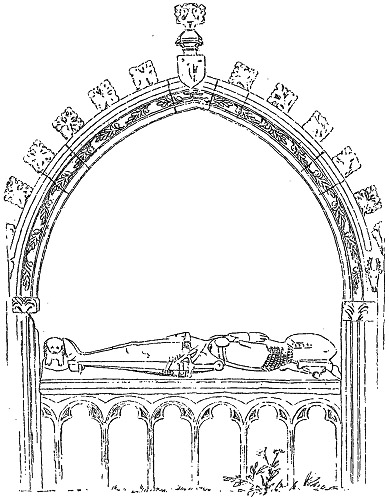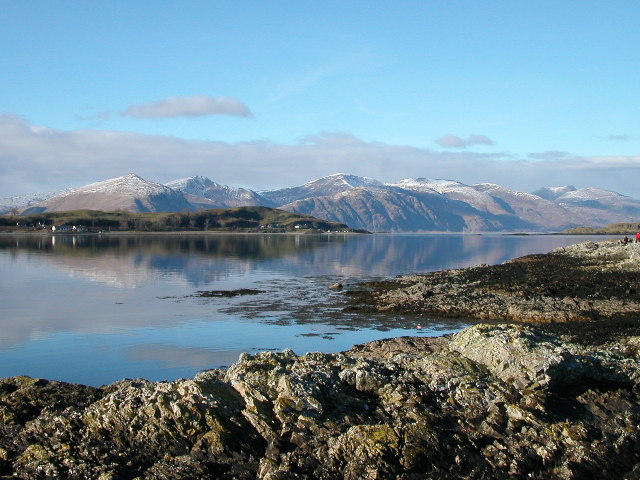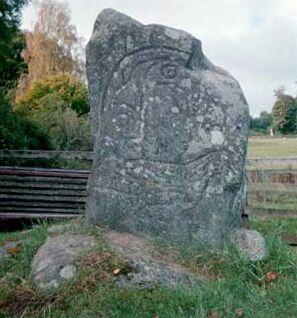|
Clan MacKenzie
Clan Mackenzie ( gd, Clann Choinnich ) is a Scottish clan, traditionally associated with Kintail and lands in Ross-shire in the Scottish Highlands. Traditional genealogies trace the ancestors of the Mackenzie chiefs to the 12th century. However, the earliest Mackenzie chief recorded by contemporary evidence is Alexander Mackenzie of Kintail who died some time after 1471. Traditionally, during the Wars of Scottish Independence, the Mackenzies supported Robert the Bruce, but feuded with the Earls of Ross in the latter part of the 14th century. During the 15th and 16th-centuries the Mackenzies feuded with the neighboring clans of Munro and MacDonald. In the 17th century the Mackenzie chief was made Earl of Seaforth in the peerage of Scotland. During the Scottish Civil War of the 17th century the Mackenzies largely supported the Royalists. During the Jacobite rising of 1715 the chief and clan of Mackenzie supported the Jacobite cause. However, during the Jacobite rising of 1745 the ... [...More Info...] [...Related Items...] OR: [Wikipedia] [Google] [Baidu] |
Hillock
A hillock or knoll is a small hill,The Free Dictionary "hillock" entry, retrieved December 18, 2007 usually separated from a larger group of s such as a . Hillocks are similar in their distribution and size to small s or s. This particular formation occurs often in |
Clan MacLea
The Clan MacLea is a Highland Scottish clan, which was traditionally located in the district of Lorn in Argyll, Scotland, and is seated on the Isle of Lismore. There is a tradition of some MacLeas Anglicising their names to Livingstone, thus the Clan Livingstone Society's website also refers to the clan as ''the Highland Livingstones''. The current chief of Clan MacLea was recognised by Lord Lyon as the "''Coarb of Saint Moluag''" and the "''Hereditable Keeper of the Great Staff of Saint Moluag''." Origins Origin of the names MacLea and Livingstone There are conflicting theories of the etymology of MacLea, MacLay and similar surnames, and they could have multiple origins. The name may be an Anglicisation of ''Mac an Léigh'' (Scottish Gaelic), meaning ''son of the physician''. In addition to MacLea, the Gaelic language surname Mac an Léigh is also anglicized to McKinley (surname) and MacNulty. The leading theory today, however, is that the name MacLea is derived from the pat ... [...More Info...] [...Related Items...] OR: [Wikipedia] [Google] [Baidu] |
Clan MacLeod Of Lewis
Clan MacLeod of The Lewes, commonly known as Clan MacLeod of Lewis ( gd, Clann Mhic Leòid Leòdhais), is a Scottish Highlands, Highland Scottish clan, which at its height held extensive lands in the Western Isles and west coast of Scotland. From the 14th century up until the beginning of the 17th century there were two branches of Macleods: the MacLeods of Dunvegan and Harris, Outer Hebrides, Harris (Clan MacLeod); and the Macleods of the Isle of Lewis. In Scottish Gaelic, Gaelic the Macleods of Lewis were known as Sìol Thorcaill ("Seed of Torquil"), and the MacLeods of Dunvegan and Harris were known as Sìol Thormoid ("Seed of Tormod"). The traditional progenitor of the MacLeods was Leod, made a son of Olaf the Black, King of Mann and the Isles, by a now-discredited tradition. An older, more accepted tradition names his father Olvir and describes the clan as Sliochd Olbhur. Tradition gave Leod two sons, Tormod, son of Leod, Tormod - progenitor of the Macleods of Harris and Dunve ... [...More Info...] [...Related Items...] OR: [Wikipedia] [Google] [Baidu] |
Clan Munro
Clan Munro (; gd, Clann an Rothaich ) is a Highland Scottish clan. Historically the clan was based in Easter Ross in the Scottish Highlands. Traditional origins of the clan give its founder as Donald Munro who came from the north of Ireland and settled in Scotland in the eleventh century, though its true founder may have lived much later. It is also a strong tradition that the Munro chiefs supported Robert the Bruce during the Wars of Scottish Independence. The first proven clan chief on record however is Robert de Munro who died in 1369; his father is mentioned but not named in a number of charters. The clan chiefs originally held land principally at Findon on the Black Isle but exchanged it in 1350 for Estirfowlys. Robert's son Hugh who died in 1425 was the first of the family to be styled " of Foulis", despite which clan genealogies describe him as 9th baron. During the fifteenth and sixteenth centuries the Munros feuded with their neighbors the Clan Mackenzie, and during th ... [...More Info...] [...Related Items...] OR: [Wikipedia] [Google] [Baidu] |
Clan Mackintosh
Clan Mackintosh (''Clann Mhic an Tòisich'') is a Scottish clan from Inverness in the Scottish Highlands. The chiefs of the clan are the Mackintoshes of Mackintosh. Another branch of the clan, the Mackintoshes of Torcastle, are the chiefs of Clan Chattan, a historic confederation of clans. History Origins of the clan The Scottish Gaelic word ' means ''leader'' and can also be translated as ''chief''. The of the Clan Mackintosh claim that the first chief of the clan was Shaw, second son of Duncan MacDuff, Earl of Fife of the royal house of Dál Riata. In 1160 Shaw MacDuff accompanied Malcolm IV of Scotland on an expedition to suppress a rebellion in Morayshire. In about 1163 he was also made constable of Inverness Castle and was granted land in the Findhorn valley. The heartland of the clan was the lands of Petty which was also the burial place of the chiefs. In 1179 Shaw MacDuff was succeeded by his son who was also called Shaw and was confirmed in his patrimony by William ... [...More Info...] [...Related Items...] OR: [Wikipedia] [Google] [Baidu] |
Clan Matheson
Clan Matheson ( gd, Clann Mhathain ) is a Highland Scottish clan. History Origins of the clan The surname Matheson has more than one anglicization of its Scottish Gaelic derivation.Way, George and Squire, Romily. (1994). ''Collins Scottish Clan & Family Encyclopedia''. (Foreword by The Rt Hon. The Earl of Elgin KT, Convenor, The Standing Council of Scottish Chiefs). pp. 270 - 271. The historian Black attributes Matheson to the Gaelic ''Mic Mhathghamhuin'' which means ''son of the bear'', and the clan chief's arms carry two bears as supporters. It has also been suggested that ''MacMhathain'' means ''son of the heroes''. The Scottish Lowland version of Matheson means simply ''son of Matthew''. Chiefs of Clan Matheson are descendants of Kenneth the first MacAlpin, king of Scotland. The Mathesons were granted lands by the Celtic Earls of Ross and settled around Loch Alsh, Lochcarron and Kintail. In 1262 a Scottish army led by Alexander III of Scotland invaded the Isle of Skye in ... [...More Info...] [...Related Items...] OR: [Wikipedia] [Google] [Baidu] |
Clan Morrison
Clan Morrison is a Scottish clan. The Highland Clan Morrison is traditionally associated with the Isle of Lewis and Harris (Leòdhas) around Ness (Nis), Dun Pabbay, and Barvas (Barabhas), lands in Sutherland around Durness, and in North Uist. There are numerous Scottish clans, both Highland and Lowland, which use the surname ''Morison'' or ''Morrison''. In 1965, the Lord Lyon King of Arms decided to recognise one man as chief of all Morrisons, whether their clans were related or not. MacGilleMhoire clan of Lewis The Morrison clan centred on the Isle of Lewis derived their surname from ''MhicGilleMhoire'', a name said to mean "son of a servant of Mary". ("Mhic" meaning son, "Gille" meaning servant and "Mhoire" meaning Mary). Morrison 1880:pp 26. In time this Gaelic surname was Anglicised as ''Morrison''. The chiefs of the clan were the Morrisons of Habost and Barvas, and held the hereditary office of brieve. On consequence of this position the clan was also known as ''Clann-n ... [...More Info...] [...Related Items...] OR: [Wikipedia] [Google] [Baidu] |
Clan MacLennan
Clan MacLennan, also known as ''Siol Ghillinnein'', Bain 1983: pp. 138–139. is a Highland Scottish clan which historically populated lands in the north-west of Scotland. The surname MacLennan in Scottish Gaelic is ''Mac Gille Fhinnein'', meaning the ''son of the follower of St Finnan''.Way, George and Squire, Romily. (1994). ''Collins Scottish Clan & Family Encyclopedia''. (Foreword by The Rt Hon. The Earl of Elgin KT, Convenor, The Standing Council of Scottish Chiefs). pp. 240 - 241. History Origins The MacLennans settled around Kintail and were related to the Clan Logan. However some historians have said that Logan was the original name of the clan with MacLennan not coming into use until the fifteenth century. In the fifteenth century a feud took place between the clans Logan and Fraser. Gillegorm Logan led his clan towards Inverness to attack the Frasers but was ambushed and most of his men were killed in the battle, that took place at North Kessock. The Clan Logan c ... [...More Info...] [...Related Items...] OR: [Wikipedia] [Google] [Baidu] |
Clan MacRae
The Clan Macrae is a Highland Scottish clan. The clan has no chief; it is therefore considered an armigerous clan. Surname The surname Macrae (and its variations) is an anglicisation of the patronymic from the Gaelic personal name ''MacRaith''. This personal name means "son of grace". Traditional origins of the clan According to the late 19th-century historian Alexander Mackenzie, and Rev. Alexander Macrae in the early 20th century, the main authority for the early history of Clan Macrae is the late 17th-century manuscript account of the clan written by Rev. John Macrae. Alexander Macrae largely based his history of the clan upon John Macrae's earlier account. According to tradition, the Macraes were originally from Ireland and shared a common ancestry with the Mackenzies and Macleans. The Macraes were said to have originated from Clunes, which is located near the southern shore of the Beauly Firth, and was within the lordship of Lovat. Alexander Macrae stated that these t ... [...More Info...] [...Related Items...] OR: [Wikipedia] [Google] [Baidu] |
Clan Stewart
Clan Stewart (Gaelic: ''Stiùbhart'') is a Scottish Highland and Lowland clan. The clan is recognised by Court of the Lord Lyon; however, it does not have a Clan Chief recognised by the Lord Lyon King of Arms. Because the clan has no chief it can be considered an armigerous clan; however, the Earls of Galloway are now considered to be the principal branch of this clan, and the crest and motto of The Earls of Galloway's arms are used in the Clan Stewart crest badge. The Court of the Lord Lyon recognises two other Stewart/Stuart clans, Clan Stuart of Bute and Clan Stewart of Appin. Clan Stuart of Bute is the only one of the three clans at present which has a recognised chief. History Origins of the Clan The Stewarts who became monarchs of Scotland were descended from a family who were seneschals (stewards) of Dol in Brittany, France. After the Norman conquest of England, the Stewarts acquired estates in England as the FitzAlan family, also Earls of Arundel. Walter Flaad or Wal ... [...More Info...] [...Related Items...] OR: [Wikipedia] [Google] [Baidu] |
Mackenzie Of Gairloch
The Mackenzies of Gairloch were a minor noble Scottish family and one of the senior cadet branches of the Clan Mackenzie, a Scottish clan of the Scottish Highlands. Hector Roy Mackenzie, I of Gairloch Hector Roy Mackenzie, 1st of Gairloch was the third son of Alexander Mackenzie, 6th of Kintail, possibly from his second marriage to a daughter of Macdonald of Morar who was a cadet of the Clan Macdonald of Clanranald. Although the Mackenzies of Hilton are the senior cadets of the clan because they descend from the second eldest son of the first proven chief Alexander Mackenzie, 6th of Kintail, the Mackenzies of Gairloch who descend from the third eldest son became guardians of Kenneth Mackenzie, 8th of Kintail because the first Mackenzie of Hilton had pre-deceased his elder brother, Kenneth Mackenzie, 7th of Kintail. Hector Roy Mackenzie led the Clan Mackenzie on the Royalist side at the Battle of Sauchieburn in 1488. The Crown granted to Hector a commission of fire and sword ... [...More Info...] [...Related Items...] OR: [Wikipedia] [Google] [Baidu] |





.jpg)
.jpg)
